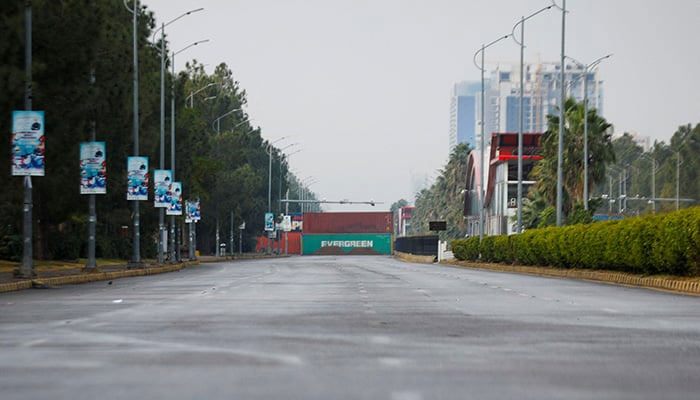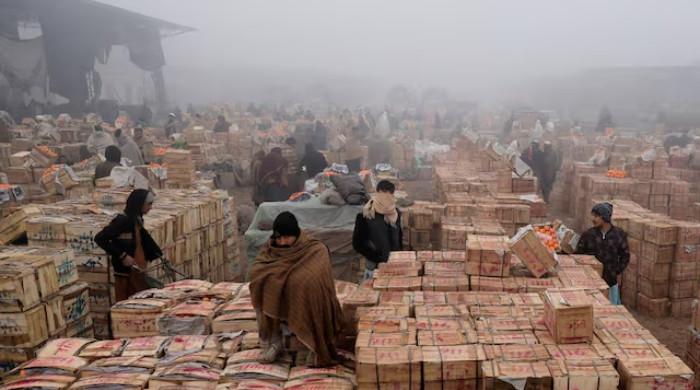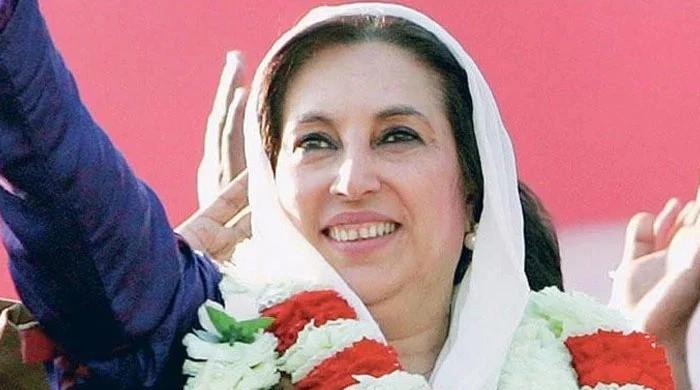Stability, predictability, continuity: Recipe for Pakistan's progress
Continuity of policies will provide country with three critical benefits: investment, sustainable growth, and brighter future
December 01, 2024

No zero-sum political theatrics, please. No idle shipping containers blocking roads, disrupting lives, and choking the economy, please. Absolutely no disruptive dharnas that paralyse cities. What Pakistanis desperately need are three things: stability, predictability and, above all, continuity of policies.
Continuity of policies will provide Pakistan with three critical benefits: attracting investment, fostering sustainable growth, and securing a brighter future for its citizens. Zero-sum political agendas should never be allowed at the expense of national progress.
Good leaders — whether uniformed or not — unite people. Bad leaders divide them. Good leaders harness shared values and meaningful connections to foster unity. Bad leaders exploit societal divisions. Bad leaders sow discord. Good leaders — whether uniformed or not — uplift society by healing its wounds; bad leaders exacerbate them.
Park Chung-hee, a South Korean politician and former general, served as the country’s third president for 17 years. While his authoritarian rule remains controversial, it was marked by a remarkable continuity of policies that spurred rapid industrialisation and economic growth. Under his leadership, South Korea’s GDP per capita soared from $87 in 1962 to $1,481 in 1980 — an extraordinary 18-fold increase.
Lee Teng-hui served as Taiwan’s president for a transformative 12-year period. Lee Teng-hui provided Taiwan with continuity of leadership and continuity of policies. He steered the island's economy away from labour-intensive industries and towards a technologically advanced, high-value manufacturing model. Under his leadership, Taiwan experienced remarkable economic growth, with GDP per capita surging from a modest $6,300 in 1988 to a substantial $15,000 by 2000.
Deng Xiaoping's 11-year tenure as China's paramount leader was marked by the 'Reform and Opening Up' policy. Deng, a former military leader, introduced market-oriented economic reforms and opened China to foreign investment. Deng prioritised political stability and social harmony, recognising their importance for economic development. As a result of these reforms, China's GDP per capita soared from $156 in 1978 to $1,400 in just 11 years.
Sukarno, a former military officer, led Indonesia for 22 years. While his economic policies were often inconsistent and hindered by political instability, he played a crucial role in laying the foundation for Indonesia's industrialisation and modernisation. Sukarno's ambitious development plans, such as the construction of large-scale infrastructure projects, aimed to modernise the country and improve the lives of its people.
Lee Kuan Yew served as Singapore's prime minister for 31 years. Lee had a strong grasp of discipline and strategy. Lee transformed Singapore from a small, impoverished British colony into a global financial hub with one of the highest standards of living in the world.
Conclusion: The recipe for national success is simple yet powerful: good leaders and long tenures. Good leaders unite, inspire, and implement forward-looking policies, while long tenures ensure the continuity needed to see those policies bear fruit. Together, they provide the stability and vision essential for lasting progress.
In an era of rapid global change, the ability to maintain political stability and economic growth is more crucial than ever. Pakistan, with its immense potential, can realise its destiny if it embraces this simple yet powerful principle: good leaders and long tenures.
The writer is a columnist based in Islamabad. He tweets/posts @saleemfarrukh and can be reached at: [email protected]
Disclaimer: The viewpoints expressed in this piece are the writer's own and don't necessarily reflect Geo.tv's editorial policy.









